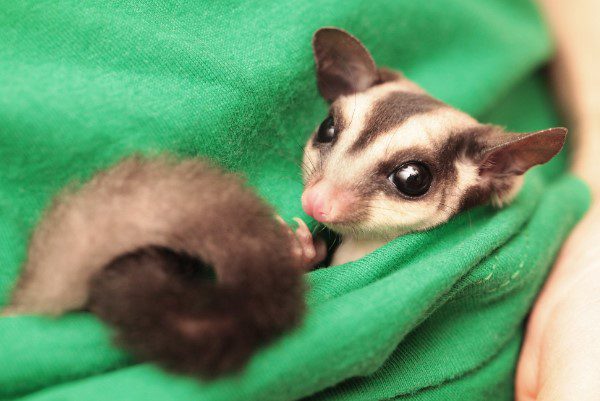Pets & Animals
How to Breed French Bulldogs Effectively

Do you have a Frenchie? If so, congratulations!
French bulldogs have quickly become one of the most popular dog breeds in existence, and their enthusiasts are growing by the day. Like yourself, though, your Frenchie came from parents.
Like any other dog breed, French Bulldogs are the product of selective breeding. If you’re interested in learning how to breed French Bulldogs effectively, you’re in luck.
Below, we’ve got a guide to all of your must-know basics. Keep on reading to learn more!
Understanding French Bulldog Genetics
Knowing the breed’s genetic makeup is essential for avoiding common health concerns. It’s essential to learn about any specific health oversight methods of certain bloodlines.
To maximize the chances of successful and healthy breeding, mate French Bulldogs that are free of any major genetic issues. Be sure to research the histories of both parent dogs and allow the pups enough time to mature before breeding.
Furthermore, both dogs should be tested for any inherited diseases such as :
- hip dysplasia
- luxating patella
- brachycephalic airway syndrome
Lastly, it’s important to ensure that the environment in which the Frenchies live and breed is safe and healthy.
Choosing Quality Sires and Dams
When it comes to breeding French bulldogs effectively, choosing quality sires and dams is essential. Of course, pedigree is important, but paying attention to a pair’s health, temperamental tendencies, and physical conformation is just as important.
Quality sires and dams should have health clearances and come from a reputable breeder. When looking at a pair’s physical conformation, take into account:
- age
- size
- hip and knee structure
When it comes to temperament, be sure the pair is friendly and gets along well with fellow dogs. Having single dog kennels can help to reduce inter-dog aggression and communication, thus reducing the chance of arguments over food and bedding.
Creating a Comfortable Breeding Environment
Creating a comfortable breeding environment means making sure the environment is safe and adequate for both the dams and sires. Adequate space should provide plenty of room for the puppies to grow and play while they await their new homes.
Puppies are also sensitive to temperature, so making sure the space is not too hot or cold for the puppies is essential. Keep in mind that French Bulldogs are prone to breathing issues, so it’s best to provide plenty of clean air for the puppies and dams.
Additionally, the dams should have clear access to fresh water, food, and a safe and comfortable area to care for their puppies. With a comfortable and safe environment for breeding French Bulldogs, you are one step closer to breeding a successful litter.
Providing Optimal Nutrition
Providing optimal nutrition to a breeding female or male French Bulldog is vital to producing healthy puppies. A quality adult French Bulldog formula should provide the necessary vitamins and minerals to keep the dam or sire in top condition prior to breeding.
Proper nutrition rich in vitamins and minerals should be included such as:
- chicken
- fish
- turkey
- fruits and vegetables
It is important to provide adequate amounts of Omega 3 fatty acids to the diet. These fatty acids contribute to balanced brain development and health throughout the lifespan.
The addition of unsaturated oils like olive and fish oil can help keep the coat healthy. It is vital to have the diet and supplements approved by a veterinary nutritionist prior to breeding.
Preparation for the Birthing Process
Before any puppies are born, it is important to assemble the birthing area, which should be a private space at an appropriate temperature that is free of disturbance. A whelping box should be set up in the area for the mother and her puppies, along with towels and blankets for the mother to nest and clean up with.
Other essential items must also be readied, such as:
- food
- water
- toys
- flashlight
- thermometer
Keeping the mother French bulldog’s vaccinations up to date and giving her multivitamins and extra calcium supplements throughout the pregnancy is important for both the mother’s and puppies’ health. Ensuring the necessary elements are in place to enable a comfortable, safe birthing process is essential for successful French bulldog breeding.
Evaluating Birth and Postnatal Care Options
A veterinarian should conduct a physical examination of the puppy at birth to check for any abnormalities. It is important to examine the puppy’s eyes, ears, nose, and mouth for any signs of infection, discharge, or swelling.
Cleanliness and sanitation need to be maintained while handling the puppy during the birthing process. Postnatal care needs to be established before a puppy leaves its mother.
Appropriate nutrition, preventative care, and medical exams are important. A breeder should be familiar with symptoms of common health conditions in order to recognize them quickly if they arise and provide treatment.
Socialization should also be a priority, and all puppies should be exposed to a variety of people, sounds, and places to build their confidence.
Recognizing Signs of Illness in a Litter
New breeders should check to see if any of the puppies have breathing issues like wheezing, coughing, or trouble breathing. Check for signs of dehydration, like sunken eyes, thick drool, or a strange way of walking.
Make sure the puppies are busy and have enough energy to move around. Also, check the babies for fleas, mites, and ear infections, which are common in French Bulldogs.
Check the dogs to see if they were born with any birth defects and to make sure they are clean and healthy. Also, it’s important to keep an eye on the puppies to see if they show any signs of sickness or infection.
Learning the Ins and Out of How to Breed French Bulldogs
Learning how to breed French bulldogs requires careful consideration of the genetic lines and the individual dog’s health. Committing to the task of breeding can be both rewarding and challenging.
If you’re willing to devote time, energy, and resources to raising healthy and happy puppies, you can learn how to breed bulldogs effectively. If you’re ready to take on the challenge, contact your local veterinarian today for more advice.
If you found this helpful, check out the rest of our blog for more great content!
Pets & Animals
5 Clever Ways to Save Money on Dog Essentials

Getting the best deal on pet medications can make all the difference for pet owners. Fortunately, many resources are available to help you save money on pet essentials.
Buy bigger bags of your dog’s favorite food to save money and avoid making frequent trips to the store. The same goes for treats and training toys—find bulk sizes or bundles to maximize savings.
Look for Store Promotions
Many pet food retailers have loyalty programs that offer discounts, special offers, and cashback on purchases. Check out those programs to see if they can save money on dog essentials and other items like toys, beds, and carriers.
You can also find dog food and supplies discounts at discount stores. Check their online deals and sales, and take advantage of special holiday offers. You can also save by buying in bulk or switching to a cheaper brand of dog food if it provides your pet with the same nutrition they require. Look for coupons on websites like RetailMeNot for rebate offers and cashback apps to save on pet supplies. These can add up quickly, so shop for your dog’s favorite toys and treats for the best deal.
Buying in bulk and selecting store brands can cut pet food costs by 50% or more per meal. Also, check for subscription services that offer discounts on products like food, litter, and waste bags.
Vaccinations, healthy eating, and regular exercise can prevent most ailments from ever occurring, which will save you money on vet visits. Use a price comparison site to ensure you get the lowest pet medication cost.
Take Advantage of Manufacturer’s Coupons
Buying the best for your furry family is essential, but it doesn’t have to be expensive. Using coupons, comparing prices, and shopping smarter can save you money on food, supplies, and toys.
High-quality dog food is essential for your pet’s health but doesn’t have to break your budget. Take advantage of pet food sales, subscription services, and loyalty programs to save on premium foods.
Many pet food manufacturers will provide coupons or samples if you contact them directly. Look for a “contact us” link or live chat feature on the company’s website. Several pet food brands offer manufacturer coupons through their websites or social media pages. Some even give away free samples with a purchase!
Sign Up for Auto-Ship
Pet ownership can be expensive, but you mustn’t break the bank to keep your furry friend happy. Consider signing up for a subscription service that offers regular pet food, treats, and waste bag deliveries. Several sites offer various auto-ship options to help you save money on essentials like dog food and supplies. In addition, some apps can pay you cash back on purchases. Stack these savings with your credit card rewards and cut your pet costs. Many pet food brands and stores offer food, treats, waste bags, and more subscription services. This can help save you a ton of money over time. Plus, some of these services offer subscriber discounts and loyalty programs that can further reduce your costs.
Save 35% on your first auto-ship order and 5% on future orders for a maximum of $20 in savings per delivery. You can modify, pause, or cancel your order at any time.
Get Cash Back on Your Purchases
Look for store promotions online or with apps when shopping for your dog’s essentials. These can include price comparison sites and apps, which automatically apply promo codes to help reduce the cost of your haul.
Pet supplies can add up, and shopping for coupons and sales can help. Using a rewards card that offers bonus points on groceries and pet purchases can also help you save money.
For instance, some sites offer food, treats, and waste bag subscription services. They’re convenient and can save you time and money. You can cancel or modify deliveries at any time.
Garage sales are a great place to find low-price toys and other items for your dog. Check with local shelters to see if they have any gently used items. Many pet stores have loyalty programs that offer discounts on food and treats. Some also offer delivery subscriptions for a discount. Changing your dog’s diet can save money if it works without compromising their health. You can also save on vaccinations by opting for extended formulations that don’t need to be administered yearly.
Try Homemade Recipes
Owning a pet is one of life’s greatest pleasures, but keeping up with food, toys, supplies, and vet appointments can add up. The good news is that many of these expenses can be avoided or reduced.
Homemade meals are often more cost-effective than buying store brands. Plus, you know exactly what’s going into your dog’s food. Ask your local butcher to cut knuckle bones for your dog (they’ll usually do it for free). These can save you money on more expensive bone treats. They also make great chew toys!
News & Law
Comprehensive Guide to Choosing the Best Kitten Insurance

Introduction
Welcoming a new kitten into your home is an exciting and joyful experience. As a responsible pet owner, ensuring the well-being of your furry friend is paramount. One essential aspect of responsible pet ownership is investing in the right kitten insurance. In this comprehensive guide, we’ll delve into the world of kitten insurance, exploring why it’s crucial, what to look for in a policy, and ultimately, how to choose the best kitten insurance for your feline companion.
The Importance of Kitten Insurance
Just like any other member of your family, your kitten can face unexpected health issues and accidents. Veterinary care costs can quickly accumulate, making it challenging to provide the best possible care for your furry friend. Kitten insurance is designed to alleviate the financial burden associated with unexpected medical expenses, ensuring that your cat receives the necessary care without compromising your budget.
Key Features to Look for in Kitten Insurance
- Comprehensive Coverage: Look for a policy that offers comprehensive coverage, including accidents, illnesses, and preventive care. This ensures that your kitten is protected in various situations, from minor injuries to chronic conditions.
- Lifetime Coverage: Opt for a plan that provides lifetime coverage. This means that chronic or recurring conditions will continue to be covered throughout your kitten’s life, providing long-term peace of mind.
- Wellness and Preventive Care: The best kitten insurance policies include coverage for routine veterinary visits, vaccinations, and preventive treatments. These features help keep your furry friend healthy and catch potential issues early, saving you money in the long run.
- Customizable Plans: Every cat is unique, and their healthcare needs can vary. Choose a provider that offers customizable plans, allowing you to tailor coverage to your kitten’s specific requirements.
- Fast and Easy Claim Process: A straightforward and efficient claims process is crucial. Look for insurance providers that offer online claims submission, quick processing times, and transparent communication.
- Emergency and Specialist Care: Ensure that the policy covers emergency veterinary care and visits to specialists. You never know when your kitten might need urgent medical attention, and having coverage for these situations is essential.
- Coverage for Hereditary and Congenital Conditions: Some breeds are prone to specific hereditary or congenital conditions. Choose a policy that covers these conditions, ensuring your kitten is protected against genetic health issues.
- Dental Coverage: Dental health is a critical aspect of your kitten’s overall well-being. Look for insurance plans that include coverage for dental treatments, as dental issues can be common among cats.
Choosing the Right Kitten Insurance Provider
- Research and Compare: Take the time to research and compare different kitten insurance providers. Read reviews, check customer satisfaction ratings, and gather information on the coverage options they offer.
- Consider the Cost: While cost shouldn’t be the sole determining factor, it’s essential to find a policy that fits within your budget. Compare premiums, deductibles, and reimbursement rates to determine the overall affordability of each plan.
- Read the Fine Print: Carefully read the terms and conditions of each policy. Understand the exclusions, limitations, and any waiting periods that may apply. Being aware of these details will prevent surprises when you need to file a claim.
- Ask for Recommendations: Seek recommendations from fellow cat owners, your veterinarian, or pet care professionals. Personal experiences can provide valuable insights into the quality of service and coverage provided by different insurance providers.
- Customer Service Matters: Consider the quality of customer service offered by each insurance provider. A responsive and helpful customer support team can make the claims process smoother and address any concerns you may have.
The Evolving Landscape of Kitten Insurance
As the demand for pet insurance rises, the market adapts with innovative offerings. Some providers now cover behavioral therapies, alternative treatments, and even lost or stolen pet scenarios. Staying informed about these trends is crucial, ensuring that your kitten not only receives essential medical care but also benefits from a broader spectrum of services. Periodically reassessing your kitten’s insurance coverage remains vital to keep it aligned with evolving industry standards, offering both comprehensive health protection and additional features that enhance your furry friend’s overall well-being.
Conclusion
Investing in the best kitten insurance is a proactive and responsible step towards ensuring the health and well-being of your furry family member. By carefully evaluating the key features, comparing providers, and choosing a plan that aligns with your budget and preferences, you can provide your kitten with the comprehensive coverage they deserve. Remember that a well-insured cat is a happy and healthy cat, and your peace of mind is an invaluable part of the equation.
Pets & Animals
Discover the Unique World of Exotic Pets at Our Store Near You

Are you tired of the same old pets like cats and dogs? Do you crave something more unique and exciting?
If you are wondering, “Is there an exotic pet store near me ?” you are in luck! An exotic pet store is home to many exotic animals that will make your heart skip a beat. Furry, scaly, or feathered – they have it all!
In this article, we will introduce you to the unique world of exotic pets and provide tips on taking care of some of our most popular creatures.
Let’s dive in!
The Appeal of Exotic Pets
Exotic pets have been gaining popularity over the years as people become more interested in owning different types of animals. They are unique and often require specialized care. This makes them a thrilling and challenging addition to any family.
The Range of Exotic Pets
At an exotic pet store, you’ll find a diverse selection of animals from all over the world. Some of the most popular exotic pets include:
Sugar Gliders
These adorable creatures are known for their flying membrane. This allows them to glide from tree to tree.
Hedgehogs
Hedgehogs are cute and quirky pets that require minimal care. They love to run on wheels and snuggle in their owner’s lap.
Chinchillas
Known for their soft fur and playful personalities, chinchillas make great pets for those looking for a cuddly companion. They are also hypoallergenic.
Tarantulas
For adventurous souls, tarantulas can be fascinating pets to own. Their hairy bodies and eight legs make them surprisingly docile and easy to care for.
Ball Pythons
While they may seem intimidating to some, ball pythons make great pets with their calm demeanor and beautiful patterns. They require minimal care and are an excellent option for first-time reptile owners.
Tips for Taking Care of Exotic Pets
To be a responsible pet owner, it’s essential to understand your animal’s needs. Here are some general guidelines for taking care of exotic pets:
Do Your Research
Before bringing home an exotic pet, it is essential to do thorough research on their specific needs and behaviors. This will help you provide the best care possible for your new companion.
For instance, researching how to take care of a chinchilla will help you understand their dietary requirements, grooming needs, and social behaviors.
Find a Reputable Breeder or Store
It is crucial to source your exotic pet from a reliable and ethical breeder or store. This ensures that the animal has been raised in a healthy and humane environment.
Prepare Their Habitat
Make sure to create an environment that mimics the natural habitat of your exotic house pet. This will keep them comfortable.
Provide a Balanced Diet
Exotic pets have unique dietary needs; feeding them a nutritionally balanced diet is essential. Consult your veterinarian to determine the best food for your pet.
Schedule Regular Check-Ups
Like traditional pets, exotic animals need routine vet check-ups to ensure they are healthy. This is especially important since many exotic pets hide signs of illness until it’s too late.
Visit an Exotic Pet Store Near Me Today
Ready to discover the unique world of exotic pets? Visit an exotic pet store near me today and meet some of these amazing animals. Knowledgeable staff will happily answer any questions and help you find the perfect pet for your lifestyle.
Don’t wait any longer! Take the first step today in bringing home a one-of-a-kind pet that will get you endless joy and love!
Was this article helpful? For more interesting reads, check out the rest of our site.
-
Technology11 months ago
IGANONY – The Instagram Story Viewer That Will Change Your Life
-
Entertainment2 years ago
Solazola: Biography, Early life, Boyfriend and Nethwoth
-
Technology1 year ago
Clevo Nh70: A Powerful Gaming Laptop For Modern Era
-
News & Law1 year ago
Trusted Legal Help: 8 Things to Look for When Hiring a Lawyer
-
Health2 years ago
Velovita Snaps: The Weight Lose Solution You’ve Been Waiting For
-
Entertainment2 years ago
Bubblebratz: A Quick Biography












